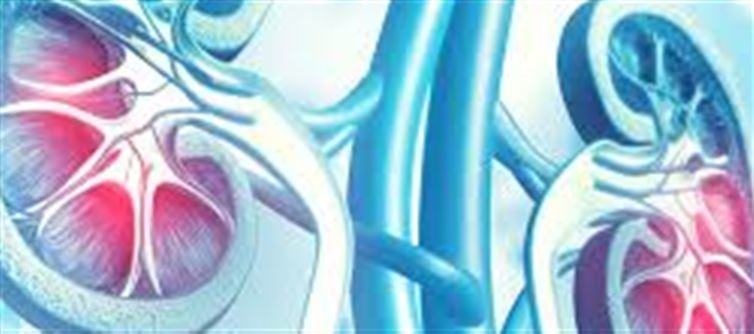
The kidneys are essential organs that work tirelessly to filter toxins from the blood, regulate fluid balance, and maintain overall bodily health. However, kidney issues often develop subtly, making it easy to overlook early warning signs. By the time symptoms become noticeable, kidney damage can be quite advanced. Recognizing these subtle but significant signs early on can help prevent severe damage or even kidney failure.
Here are five alarming symptoms that may indicate your kidneys are in serious danger:
1. Unexplained Fatigue and Weakness
Fatigue is a common complaint that many people experience, but if it’s persistent and unexplained, it could point to kidney problems. The kidneys play a key role in producing erythropoietin, a hormone that stimulates red blood cell production. If the kidneys are not functioning properly, anemia (a deficiency of red blood cells) can occur, leading to feelings of extreme fatigue and weakness. This happens because the body isn't getting enough oxygen due to low red blood cell levels.
What to Look For:
· Unusually tired, even after adequate rest.
· Difficulty performing normal activities due to low energy.
· Feeling faint or lightheaded at times.
2. Swelling or Puffiness in the Legs, Ankles, and Feet
The kidneys are responsible for regulating the body’s fluid balance. When the kidneys begin to fail, they may struggle to remove excess salt and water from the body, causing fluid retention. This can lead to noticeable swelling in the lower parts of the body, such as the legs, ankles, and feet.
What to Look For:
· Swollen feet or ankles, especially after standing for long periods.
· Puffiness around the eyes, particularly in the morning.
· Tight-fitting shoes due to fluid retention.
3. Changes in Urine Patterns or Appearance
Your urine can be a key indicator of kidney health. Any noticeable changes in your urinary habits could signal kidney issues. Kidney dysfunction can cause the body to either produce too little urine (oliguria) or too much urine (polyuria). Additionally, if your urine becomes foamy, frothy, or unusually dark, it could suggest the presence of excess protein or blood in the urine.
What to Look For:
· Foamy or frothy urine, which could indicate protein leakage.
· Dark, tea-colored, or bloody urine.
· Increased frequency of urination, especially at night.
· Pain or a burning sensation while urinating.
· Difficulty urinating or feeling the need to urinate but not being able to.
4. Shortness of Breath or Difficulty Breathing
Kidney problems can affect fluid levels in the body, and if excess fluid builds up in the lungs, it can lead to shortness of breath. This is often seen in individuals with kidney failure or chronic kidney disease (CKD). Fluid buildup in the lungs can also cause chest pain or a feeling of tightness. Additionally, kidney disease can contribute to anemia, which can make you feel out of breath with minimal exertion.
What to Look For:
· Difficulty breathing, especially when lying down.
· Shortness of breath even during mild physical activity.
· Tightness or discomfort in the chest.
5. Persistent Back or Flank Pain
The kidneys are located on either side of your spine, just below the rib cage, and any pain in this area should not be dismissed lightly. Flank pain or discomfort near the lower back, especially if it’s constant or worsening, could be a sign of kidney stones, infection, or more serious kidney issues like chronic kidney disease. While occasional back pain can be a result of muscle strain or poor posture, persistent pain in the kidney area requires attention.
What to Look For:
· Dull, constant pain in the lower back, side, or under the rib cage.
· Pain that doesn’t improve with movement or rest.
· Sharp, intense pain that may come and go, often associated with kidney stones.
When to Seek Medical Help
If you experience any of these symptoms persistently or in combination with each other, it is crucial to consult a healthcare professional as soon as possible. Kidney disease often progresses silently, but with early detection, it is possible to slow or even prevent further damage. Your doctor may recommend tests like blood tests (for creatinine and GFR), urine tests (for protein and blood), and imaging tests to assess kidney function.
Prevention and Early Detection
To safeguard your kidney health, it’s essential to:
· Stay hydrated and maintain proper fluid balance.
· Manage blood pressure and keep it within healthy limits.
· Monitor blood sugar levels, especially if you are diabetic.
· Limit salt intake to reduce kidney strain.
· Get regular check-ups and screenings, particularly if you have a family history of kidney disease or other risk factors.
Conclusion
Blurred vision, fatigue, and discomfort in everyday activities could be more than just minor inconveniences — they may indicate something much more serious. Recognizing the subtle signs of kidney problems early can make a significant difference in your treatment and overall health. If you or a loved one are experiencing any of these symptoms, don’t delay seeking medical attention. Early intervention is key to protecting your kidneys and maintaining your overall well-being.
Disclaimer:
The views and opinions expressed in this article are those of the author and do not necessarily reflect the official policy or position of any agency, organization, employer, or company. All information provided is for general informational purposes only. While every effort has been made to ensure accuracy, we make no representations or warranties of any kind, express or implied, about the completeness, reliability, or suitability of the information contained herein. Readers are advised to verify facts and seek professional advice where necessary. Any reliance placed on such information is strictly at the reader’s own risk..jpg)




 click and follow Indiaherald WhatsApp channel
click and follow Indiaherald WhatsApp channel